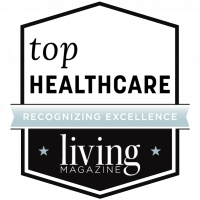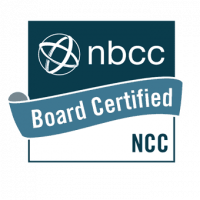Prevention & Recovery from Substance Abuse

Free Substance Abuse Consultation
If you would like some help, please reach out to us to schedule a free consultation. It’s quick and easy to book directly on our calendar for a phone or online consult.
Table of contents
Sometimes, life can throw curveballs at us and problems with drugs and alcohol are some of the hardest ones. They can make everything seem dark and confusing. But it’s important to know that no matter how hard things get, there’s always a way out. There’s always hope.
In this article, we’ll talk about two important things: prevention and recovery. Prevention means learning about the dangers of drugs and alcohol and finding ways to avoid these problems before they start. It’s like having a map that helps you steer clear of the risky paths.
Recovery, on the other hand, is about finding the way back to a healthy life if you’ve already faced these problems. It’s about turning on a flashlight to see the road ahead, even if it’s dark.
By reading this, you’re already doing something important. You’re learning how to make good choices for yourself and how to help your friends do the same. You’re turning on the light in the dark, chasing away the shadows, and making tomorrow a better, brighter day for everyone. So, let’s dive in and find out more about how to prevent and recover from substance abuse. We promise, it’ll be a journey worth taking.
How to know if it's a problem
Recognizing a substance abuse problem can be challenging, whether it’s within oneself or in a loved one. For many, drug and alcohol use can form a complex, deeply-rooted connection with their identity, making the acknowledgment of an addiction and the pursuit of help incredibly difficult.
Surprisingly, this issue affects a vast number of Americans. In fact, alcohol alone has touched the lives of around 90% of people in the country. Recent studies suggest that up to 9.4% of men and 5.2% of women have been diagnosed with a substance abuse disorder. The National Center of Addiction and Substance Abuse reports that a quarter of Americans who started using substances like drugs, alcohol, or tobacco before adulthood now struggle with a substance abuse problem. It’s a pattern that often starts in the teen years and may worsen as people age. This is due to the body’s decreasing ability to tolerate addictive substances, which amplifies their harmful impact.
So, how can you identify a potential substance abuse issue? What are the telltale signs and behaviors that might indicate someone is battling addiction to drugs, alcohol, or other substances? Let’s explore these questions to better equip ourselves to recognize, understand, and address substance abuse problems.
Looking for substance abuse recovery in Frisco?

MS, LPCC, LPC, NCC
Therapist | Licensed Professional Clinical Counselor | Nationally Certified Counselor
As an experienced addiction counselor with over 15 years of practice, I specialize in helping people conquer their addictive behaviors and reach recovery goals. My approach, focused on trust-building, resilience, and emotional intelligence, aids you in unraveling addiction’s complexities to foster a healthier mindset.
Contact me to book your first session and start your journey to a brighter, more satisfying future.
Common substance abuse signs in adults are:
Recognizing the signs of substance abuse can be a crucial step towards getting help for oneself or a loved one. In adults, these indicators can manifest in various ways, impacting different aspects of their life.
Here are some of the most common signs of substance abuse in adults:
Physical changes: This may include sudden weight loss or gain, changes in sleep patterns, bloodshot eyes, or deterioration in personal grooming habits.
Behavioral shifts: Changes might include neglecting responsibilities at work or home, decreased participation in activities they used to enjoy, or increased secretive behavior.
Psychological changes: These could involve unexplained mood swings, increased irritability, or signs of anxiety or depression.
Financial problems: An unexplained need for money or financial difficulty can often indicate a substance abuse issue.
Health issues: Frequent health problems, or neglecting to seek treatment for health issues, can be signs as well.
Legal issues: Encounters with law enforcement or other legal problems related to substance use may also be a sign.
Relationship issues: Conflicts with family members or friends, or changes in social circles, may be associated with substance abuse.
Please remember that the presence of any of these signs doesn’t necessarily confirm a substance abuse issue. They are indicators that further attention may be required, and professional help might be necessary for an accurate diagnosis.
What are early signs of substance abuse in teens?
Understanding the nuances of teen behavior is often a challenging part of parenting. Mood swings and varying attitudes may simply be part of growing up – navigating life’s obstacles can be tough, especially for those still accumulating life experience. Adding fluctuating hormones to the mix, it’s expected for teens to be somewhat unpredictable. It’s a period of self-discovery, made more challenging by societal pressures, including those from parents, school, work, coaches, and importantly, peers.
However, it’s crucial to stay alert to potential signs of substance abuse, like drugs or alcohol, in your teen’s behavior. If your child starts showing not just mood swings, but also changes in appearance and behavior, trust your parental instincts. If something feels off, you may have good reason to dig deeper.
Key signs of possible substance abuse in teens could include sudden drops in academic performance, frequent school absences, or declining sports performance. Changes in appetite, sleep patterns, and the company they keep can also be warning signs. If these red flags appear, addressing suspected substance abuse promptly is vital. While confronting risky behavior can be difficult, a direct, honest approach is necessary. Lean on your network of family, friends, and professional resources to guide your teen away from the perils of substance abuse and towards a path of recovery and wellness.
Current Signs of Teen Substance Abuse: Drugs, Alcohol & Medications
Detecting early signs of substance abuse in your teen often involves discerning normal teenage behavior from potentially harmful patterns. A critical red flag could be your teen’s dwindling interest in previously enjoyed activities such as sports, music, or academics. Equally noteworthy are alterations in their social circle. If your teen replaces longstanding friends with a new group, especially one associated with substance use, it merits attention.
Behavioral Changes: Despondency, Aggression, and Secrecy
Substance abuse can cause noticeable behavioral shifts. Watch for signs of unexplained aggression, despondency, or unusual secrecy. An increased demand for privacy, locked doors, or clandestine phone calls can be indicators. Regular requests for money, or worse, instances of stealing, may point towards an expensive substance habit.
Academic Impact: Absenteeism and Declining Performance
Your teen’s academic and work performance can provide crucial insight. Repeated absences, slipping grades, or shirking responsibilities could suggest a potential issue. Disregarding rules, avoiding curfews, and showing little respect for consequences can be signs of substance abuse.
Physical and Psychological Changes: Unusual Mood Swings and Appearance
Changes in your teen’s physical appearance and psychological state can signal substance use. Look out for sudden mood swings, poor personal hygiene, excessive sleep, or uncharacteristic hyperactivity. Substantial shifts in appearance such as drastic weight loss, bloodshot eyes, tremors, frequent nosebleeds, or facial sores are cause for concern. Wearing long sleeves in warm weather could be a strategy to hide track marks.
Cognitive Changes: Staying Focused
Lastly, cognitive changes like difficulties in focusing or maintaining attention on tasks can indicate substance abuse. Remember, it’s vital to approach these signs with understanding and caution. Should you suspect substance abuse in your teen, seeking professional guidance is the best course of action.
Am I at risk for being an addict?
Scientific research has identified key factors that escalate the risks of addiction. These elements, summed up in the acronym “FACTS”, represent Family History, Age of First Use, Cravings, Tolerance, and Surroundings. Your personal ‘FACTS’ profile can offer significant insights into your addiction risk.
Family History: The Genetic Connection
If there’s a history of alcohol or drug dependence in your biological family – parents or siblings – your predisposition to addiction increases. Those with such familial links, especially young individuals, are statistically at a higher risk of developing a substance abuse disorder.
Age of First Use: Early Exposure
The earlier you’re introduced to alcohol, drugs, or other substances, the greater your risk of developing an addiction. Younger individuals are particularly vulnerable due to their ongoing physical and mental development.
Cravings and Tolerance: A Dangerous Cycle
Cravings and tolerance levels are intertwined. As substance use frequency increases, your body starts to perceive it as normal, leading to stronger cravings. As a result, you require more of the substance to achieve the desired effect, propelling a dangerous cycle of increasing tolerance and cravings. For adolescents with developing minds and bodies, this cycle can accelerate, resulting in faster addiction progression and potentially severe outcomes.
Surroundings: Environmental Influence
Your surroundings can play a significant role in shaping substance use behavior. Regular exposure to drug and alcohol abuse through family members or peer groups normalizes substance use, making you more likely to experiment or continue using. The more time you spend in such environments, the greater your risk of developing an addiction.
Debunking Popular Myths about Substance Abuse
Substance abuse can start innocently, often with casual or experimental drug and alcohol use. However, it’s crucial not to dismiss these early stages as ‘experimentation’ or a ‘phase’. Open, honest conversations about substance use are critical, and the best time to address this issue is early on. If ignored until a crisis or an emergency arises, it may become increasingly challenging to reverse the course of this behavior. Early intervention is key, and professional counseling is invaluable.
Now, let’s debunk some prevalent misconceptions about substance abuse:
Myth 1: Addiction Indicates Weak Willpower
The first misconception is that addiction signifies a lack of willpower or weakness. However, substance addiction is a complex disease that alters the brain, making willpower a less relevant factor than biological and environmental influences.
Myth 2: All Prescribed Drugs are Safe
Another common myth is that all prescribed drugs are safe because a doctor administers them. Remember, even prescription medications can be addictive if misused or taken without medical supervision.
Myth 3: Marijuana, Vaping, and ‘Soft’ Drugs Aren’t Addictive
The belief that marijuana, vaping, and so-called ‘soft’ drugs aren’t addictive is misleading. Any substance that alters the brain’s functioning can lead to addiction.
Myth 4: Addiction Stereotypes
The stereotype that addicts belong to a certain group of people is inaccurate. Addiction crosses all socioeconomic, racial, and personal barriers.
Myth 5: Rock Bottom is a Pre-requisite for Recovery
Contrary to popular belief, hitting ‘rock bottom’ isn’t a prerequisite for recovery. Many individuals seek help and successfully recover before reaching this stage.
Myth 6: Addiction is a Choice
No one chooses to become an addict. While the initial decision to use substances may be voluntary, continued use can lead to physical changes in the brain that challenge an addicted person’s self-control and hamper their ability to resist intense cravings.
Myth 7: Stable Life Implies No Addiction
Even individuals with stable jobs and family lives can suffer from addiction. Substance abuse doesn’t discriminate and can affect anyone, regardless of their life circumstances.
Myth 8: Treatment is a Quick Fix
Treatment isn’t a magic fix; it’s the beginning of a lifelong commitment to health and wellbeing. Recovery is an ongoing process that requires continuous effort and support.
Myth 9: Relapse Equates to Failure
Relapse doesn’t mean failure or that the person is a ‘lost cause.’ It’s often a part of the recovery process, indicating that treatment should be adjusted or reinstated.
Myth 10: Addiction is Merely a Behavioural Problem
While addiction does manifest in behavior, it’s much more than a behavioral issue. It’s a complex disorder that affects the brain’s structure and function, necessitating a comprehensive approach to treatment.
How therapy can help addictions
Remember, you’re not alone in your journey towards recovery. If you need immediate help, don’t hesitate to call 911.
At Northstar Counseling & Therapy, we stand by you in your battle against substance abuse. Our comprehensive approach towards substance abuse treatment provides a solid foundation for your recovery.
Therapy for substance abuse disorders can be a game-changer. It helps address a range of issues, from underlying mental health conditions to fostering healthier habits and relationships. Here’s what you can expect:
Addressing Mental Health Issues
Mental health conditions often co-occur with substance use disorders. Our therapists help you identify and address these issues, fostering an environment for comprehensive healing.
Reforming Negative Behaviors
Therapy aims at replacing harmful behaviors with positive ones. It equips you with the necessary tools to navigate everyday life without resorting to substance use.
Building Healthy Relationships and Support Systems
Addiction can strain relationships. Therapy guides you towards mending these bonds and establishing robust support systems critical for sustained recovery.
Preventing Relapse
One of the key components of our therapy is relapse prevention. We work with you to identify potential triggers and formulate a personalized action plan for each scenario. This approach significantly reduces the risk of relapse.
Substance abuse treatment has a proven track record. If you’re grappling with addiction, seeking professional help from a rehab center can be a critical step. Many states offer a variety of programs – a local search can guide you to available resources.
Megan Corrieri, with her extensive experience working with addicts from all walks of life, can be your ally in your journey towards recovery. Don’t hesitate to schedule a free consultation with her if you have any questions or need support.
How to get started with substance abuse therapy
Continue your path to recovery with NorthStar Counseling & Therapy. We create personalized substance abuse therapy plans to meet your needs and enable long-lasting change for a more enriching life.

Megan Corrieri
Owner, Clinician, Wife & Mom
Share:
For more information on this topic. Please visit the following sites:
- Substance Abuse and Mental Health Services Administration (SAMHSA):











